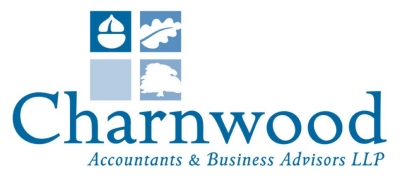
Many business owners say their business is their pension, but what does that actually mean? In order for it to be a viable pension it needs to generate you an income or a lump of capital in some way and, ideally, without you having to drive it like you do now otherwise that is a job, not a pension!
When the time comes, and you are ready to handover or end your time with your business, planning well in advance is vital to ensure a smooth exit. Thankfully for business owners there are many options available, the sooner you begin discussions and consider these options for exit the better for you and your business.
Many people think the only way out is to sell but there are many options including trade sale, management buy-in and buy-outs, family buy-outs and employee ownership trusts. Each are detailed below but they can also be combined in a hybrid structure in order to best meet the business owner and the businesses needs:
Trade Sale
The most well-known option. A trade sale has options within it such as selling shares or assets. Sale of shares will usually be subject to Entrepreneurs Relief, which results in just 10% tax on the gain.
Pros
- Generally, a good price for your business
- An element of the consideration is paid upfront (usually a substantial one)
- The purchasers may continue to employ you (which could also be seen as a negative!)
Cons
- Finding a suitable buyer may be difficult
- Often time consuming and stressful
- Expensive in terms of legal and advice fees
- Some elements of the consideration may be deferred
Management Buy Out (MBO)
The senior management team within your business chooses to buy-out the business and manage it themselves.
Management Buy In (MBI)
Similar to a management buy-out, but this involves an external management team, who don’t currently work in the business, purchasing the shares from the owners. Similar to a trade sale, but again if it is individuals making the purchase, they may be restricted by their ability to raise funds, therefore pros and cons similar to above. Succession via family members
Passing on or selling the business to a family member can be an attractive option, particularly if you are interested in supporting a legacy for your business and potentially still being involved in some capacity with the business.
In relation to the 3 options above pros and cons are similar:
Pros
- Likely the business name, culture and values will remain
- Opportunity to see people you have trained flourish
- Often flexibility in timing to suit you
- Can potentially extract retained profits at 10% rather than dividend rates of 32.5/39.1%
Cons
- Consideration is often deferred as the individuals may find it difficult to raise funds
- Finding the right team of people to undertake the transaction
- Issues with other staff members who are not part of the deal
With our experience of structuring business exits there are a number of options available that can help overcome some of the issues faced with this kind of succession; particularly structuring the transaction to ensure that the 10% tax rate is achieved.
Employee Ownership Trust
The transfer of ownership to a Trust for the benefit your business’s employees. This structure does not involve finding a buyer as such, as the business is effectively owned by no one following the transfer of the shares to the Trust.
Pros
- Proceeds can come from built up cash, plus future profits of the business
- Rather than paying dividend tax you can pay the tax on sale to an EOT which is 0%
- Sale to an EOT is 100% capital gains tax free, due to the potential risks involved with the deferred proceeds
- It is possible to undertake sale to an Employee Ownership Trust alongside a partial MBO to ensure the senior management team stay motivated
Cons
- In the first instance the business will owe you money so likely you will continue to be involved in the business until you are paid off
- There is a risk that the company could go bust and you will never receive your money
- Getting the right team to run your business
Alongside these basic options you can also combine several of the above options as well as looking into the following:
Enterprise Management Schemes (EMIs)
This option provides key employees with the opportunity to buy set price shares in your business at a future date. This provides an incentive for employees to maintain their involvement in the business with the promise of an equity stake in the future. An EMI option is often exercised by an employee on sale of the business, as it is likely they can sell their shares for more than they purchased them for. EMI shares also qualify in most circumstances for the 10% capital gains tax.
Gradual withdrawal from the business
You may feel more comfortable with a gradual withdrawal by paying someone else to run your business, allowing you time to oversee the new (or existing) management team and direction of your business. You can maintain as much or as little influence over the decision making and running of your business during this time and choose the ideal time for you to exit completely.
Deferred Payments
Rather than a lump-sum, you or a potential buyer may be interested in accepting deferred payments for your business. Meaning that you can stay involved during the hand-over process until the final payment has been made. You will need to ensure that you are comfortable that the buyer can afford the instalment costs.
Earn outs
This allows some protection to the buyer, by providing you with an up-front payment (not the full asking price) for your business, whilst asking you to remain as an employee for a set period of time before paying the remaining balance. Within this time, you will likely have very little influence over the business and the final payment will be subject to pre-agreed targets being met within that time period. This option allows you a phased-out approach from your business and demonstrates to your buyer that your business is as good as you say it is.
It is important to consider each option and impact each could have on your business, employees, customers and shareholders. Your reasons for exit, be that financial, physical, emotional or just to reduce your workload will have an effect on your decision.
Remember you are not alone! Whichever option you choose Charnwood Accountants and Business Advisors LLP are specialists in advising business owners on their exit options. The sooner the discussions begin taking place the better!
Please get in touch if you would like to go through the options available to you and begin your consultation.
